Animal adoption may have evolutionary benefits, but it may also be due to other factors such as empathy or inexperience.
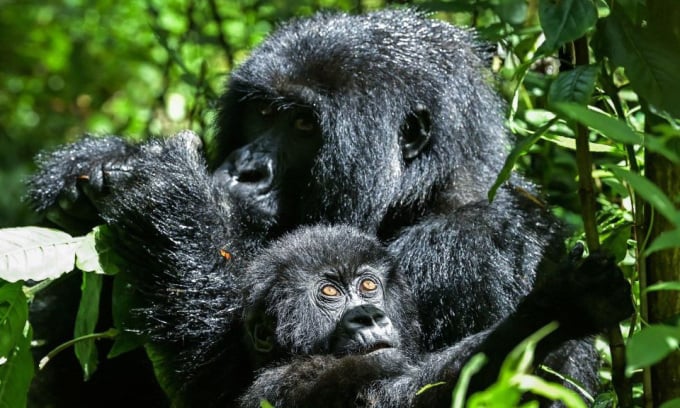
Mountain gorillas ( Gorilla beringei beringei ) live in groups and adopt orphaned calves. Photo: SIMON MAINA/AFP
Caring for an orphaned, unrelated newborn may have evolutionary advantages for foster parents, according to Michael Weiss, a behavioral ecologist and director of research at the Center for Whale Research in Washington state. For example, adoption may provide valuable experience for non-parenting females, which could increase the chances of future offspring surviving. Adoption can occur within the same species or between different species, although the latter is extremely rare.
In a 2021 study in the journal eLife , a team of experts looked at the effects of maternal loss on mountain gorillas ( Gorilla beringei beringei ) and found that orphans over 2 years old formed close bonds with other members of the troop, especially with the dominant male.
Mountain gorillas live in groups, usually consisting of a dominant male, several females, and their cubs. Regardless of whether the dominant male fathers the cubs, his role is to protect the next generation from being killed by rival males.
“Males that are good at caring for their young and doing so in front of females are highly sought after. Caring for an orphaned young may give the dominant male points, increasing his chances of mating and passing on his genes,” explains Robin Morrison, lead author of the study in the journal eLife and a behavioral ecologist at the University of Zurich.
Morrison says that female mountain gorillas in a troop don’t necessarily benefit from raising orphaned calves, but it doesn’t take much effort because calves over 2 years old can feed themselves. Plus, the other calves will have playmates, which is good because it helps them improve their social skills.
Adoption is also common among other primates and may help keep groups together. In a 2021 study published in the journal Scientific Reports , the team documented the first case of a great ape, specifically a female bonobos ( Pan paniscus ), adopting a baby from another group. They suggest that this behavior may enhance the social status of the adults.
Another possibility is that, like humans, female bonobos feel empathy and affection for their newborn babies. However, this affection could lead to kidnappings and death of the babies if they are caught in a stampede.
Primates can also exhibit caregiving instincts, just as humans do when they see a baby or small animal. This isn't unique to primates, according to Weiss, who spends much of his time studying killer whales ( Orcinus orca ) in the waters around the Pacific Northwest and western Canada.
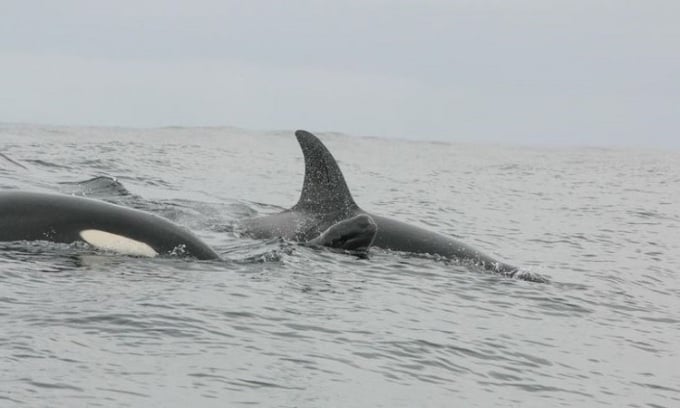
A young pilot whale swims with a killer whale. Photo: Icelandic Orcas
In 2021, scientists in Iceland first spotted killer whales adopting a Globicephala (pilot whale) calf. In June 2023, the Icelandic Killer Whale Project was also baffled by another female exhibiting similar behavior.
These cases are a "big mystery" because researchers have never seen adults of the two species communicating with each other, meaning killer whales may have kidnapped pilot whale calves, Weiss said.
One big question is how this benefits the killer whales. Milk production is energy-intensive, and mother killer whales nurse their calves for up to three years. By distracting the mother killer whale and depleting her resources, adopted calves can also cause problems for their own offspring.
The researchers suggest that the female killer whale may feel compelled to care for a young animal because she herself has just given birth. Many other factors may contribute to the adoption, such as curiosity, high sociality, or inexperience. Inexperience could explain the killer whale's interest in the pilot whale. "It could be a misplaced maternal instinct," Weiss said.
Inexperienced mothers sometimes make mistakes in non-mammalian species. Cuckoos ( Cuculus canorus ) are brood parasites, meaning that females lay their eggs in other species’ nests to save them the trouble of caring for them. In a 1992 study in the journal Behavioral Ecology , the authors found that young females of the great reed warbler ( Acrocephalus arundinaceus ) were more likely to be fooled by cuckoo eggs than older females.
Thu Thao (According to Live Science )
Source link






![[Photo] Hanoi morning of October 1: Prolonged flooding, people wade to work](https://vphoto.vietnam.vn/thumb/1200x675/vietnam/resource/IMAGE/2025/10/1/189be28938e3493fa26b2938efa2059e)



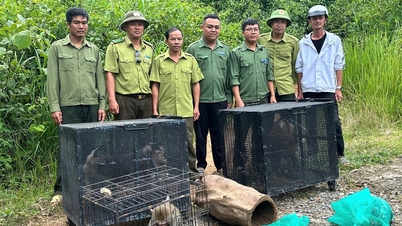




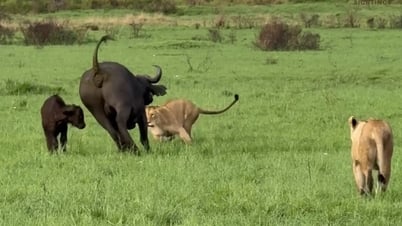


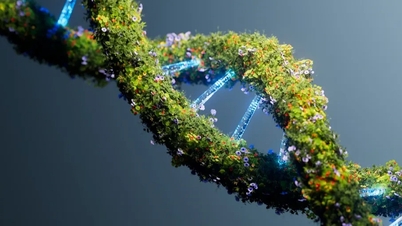
















![[Photo] Panorama of the cable-stayed bridge, the final bottleneck of the Ben Luc-Long Thanh expressway](https://vphoto.vietnam.vn/thumb/1200x675/vietnam/resource/IMAGE/2025/9/30/391fdf21025541d6b2f092e49a17243f)























































Comment (0)